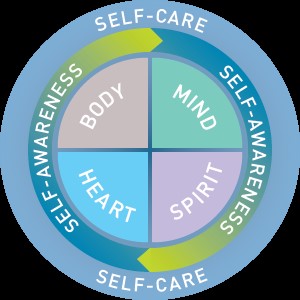FROM THE ARCHIVE: Keep Stress From Derailing Your Work and Life


In recent weeks, many of our trainees have received offers to attend graduate school or for academic and industry jobs. Others are making decisions about where to apply and what career paths to choose. While exciting, it also can be stressful to choose among various options and offers. Here are a few family related questions that trainees bring to counseling sessions. What are the best jobs for scientists with families? We are returning to our home country to be near our family raise our children. How can I go about finding a job abroad? Should I disclose that I have a family during my interview? Will you help me find job in industry because I need to make money to take care of my family? My family wants me to be a doctor. I want to do something else. Will my family be able to live with me in graduate school? How can I investigate school systems for my children when I accept a job? I cannot decide if I want a master’s or PhD because I want to have children and don’t want to be in school for a long time. What are the best companies for families? We are an LGBT couple, what are the best places to work? My parents are aging, so I need to be near them while raising my current family. I need flexibility in my schedule which seems impossible as a scientist. What are my options? As you can see from these questions, the impact of family can change over the course of your time as a trainee preparing for a career in the sciences. Career counselors often encourage clients to engage in self- reflective assessment at each stage to help our clients make better informed career decisions with more confidence. Here are a few questions to reflect upon: Who is in your family currently? Has this changed (i.e. marriage, children, extended family) What people in your life encouraged/discouraged/challenged you in your career pursuit? What messages did you receive from your family about your career choice? Ability to pursue this career? What is going on in the world around you now that will impact your career choice? Are you the first to pursue this path? Is your career choice the same as others in your family? Will family be relocating with you during this choice of careers? Have you considered housing, cost of living, school systems? Are three expectations of your partner/spouse relative to your career choice? In what way will your extended family be involved in your career plan? The OITE provides a variety of programs and services that support trainees with families. Feel free to make an appointment with a career counselor to discuss these or related to your career decision. Visit our website to look at resources for trainees who are also parents and read the OITE Careers blogs “To Share or Not To Share: Family Planning in the Job Market and Scientists as Parents: A Balancing Act . If you are part of our extended readership beyond NIH, we encourage you to pursue similar services in your community.

It can be easy to get swept up in the excitement of a job offer and immediately say, “Yes, I’ll accept!” During the interview, you probably already learned a lot about the organization and role; however, it is imperative that you take even more time – once an offer is in hand – to get clarity on job specifics. If you have recently been offered a position, here are some points to consider:
If you need more help evaluating a job offer, feel free to make an appointment with an OITE career counselor. The OITE can serve as a resource and sounding board as you embark on your decision-making process.

In last week’s blog post, we discussed considerations for properly evaluating a job offer. On top of all those points, there are more things to consider if it is an international job offer. Here are some questions to ask:
In addition to these specific questions about the job itself, it is important to consider your life outside of work and to evaluate how this move could have a larger impact on you and your life.
Have you taken a job abroad? If so, what do you wish you had asked or known before doing so? Comment below with your own questions and tips for others considering international job offers!
The decision to re-apply for medical school naturally brings mixed feelings. You should be congratulated for the investment of time, effort, and expense that all applicants invest during the application process. For those of you who are on waitlists for admission this cycle, there is still a possibility for matriculation this year. Simultaneously, it is time for you to consider re-applying. You Are Not Alone The reality is that in 2016, the AAMC reported that there were over 49,000 medical school applicants. From that pool of applicants, fewer than half matriculated into their first year of medical school. Dr. Bill Higgins, Pre-Professional Consultant in the OITE, suggests that you address the following questions to decide if you should re-apply to medical school. Ask Yourself: What were the strengths and deficits in my application? Never just reapply without addressing the problems in your application. Can these be remedied prior to the next application cycle? Take ownership of this process and do not re-apply with the same application you used previously. Schools will appreciate the persistence towards the goal of admission to medical school; however, you should re-apply with a new and updated AMCAS application. Preferably, you will also show a marked increase in clinical hours, new publications or awards, and or an increase in your science GPA and MCAT scores. You will need to update your AMCAS application including your 15 experiences, personal statement, and references. Remember the golden rule: apply early in the cycle (during the month of June)! Am I creating a convincing personal statement about my preparation for medical school to a selection committee? It is recommended that you revise your personal statement. As you review your statement, instead of asking are your telling a story, ask yourself if you are providing appropriate proof and examples to the selection. To get you started, review the blog regarding writing a persuasive personal statement. Is it in your best interest to re-apply for the next cycle? Be honest with yourself and decide if is better to apply during this cycle or apply or in one-year so that you are applying when your application will be at its strongest. Did you overlook applying to schools that could be a good fit? Make sure you have a realistic understanding of your credentials and the admissions requirements at various medical schools. Factor in each school’s metrics (Science GPA and MCAT scores), mission, curriculum as well as your desires for a medical education, and your values. Do I need to apply to a pre-medical post-baccalaureate program? Completing a pre-medical post baccalaureate program can be the most effective way to gain the qualifications needed for medical school acceptance. If you have determined that you need to increase your science GPA, gain clinical or research experience, re-take the MCAT, and/or need more support through the process, then there are a variety of programs that would suit your needs. Visit the AAMC post-baccalaureate programs information site which describe the various programs nation-wide. Have you considered related health professions? Graduate programs? You may want to consider additional health care career options if you have not gained entrance to medical school after several attempts or if you have an interest in another field. In fact, in 2015, the AAMC published an updated report on “The Complexities of Physician Supply and Demand: Projections from 2013-2105.” The conclusion of this study suggests, “that the demand for physician services is growing faster than physician supply and that by 2025 demand will exceed supply by 46,100 to 90,4000 physicians.” While the demand for physicians will grow, so too will the demand for other health-care related positions like nurses or physician assistants. You may also consider applying Doctor of Osteopathy programs or pursue doctoral education in a scientific career as well. Did you attend OITE workshops and utilize pre-professional advising services? If you are at the NIH the OITE Career Services Center provides pre-professional advising, career counseling and a host of workshops and programs that will support your decision to re-apply. For example, you can attend the next workshop, Filling Out the AMCAS workshop on May 8, 2018. If you are not at the NIH, check with your college or university for these services or at a community or private counseling center in your community.